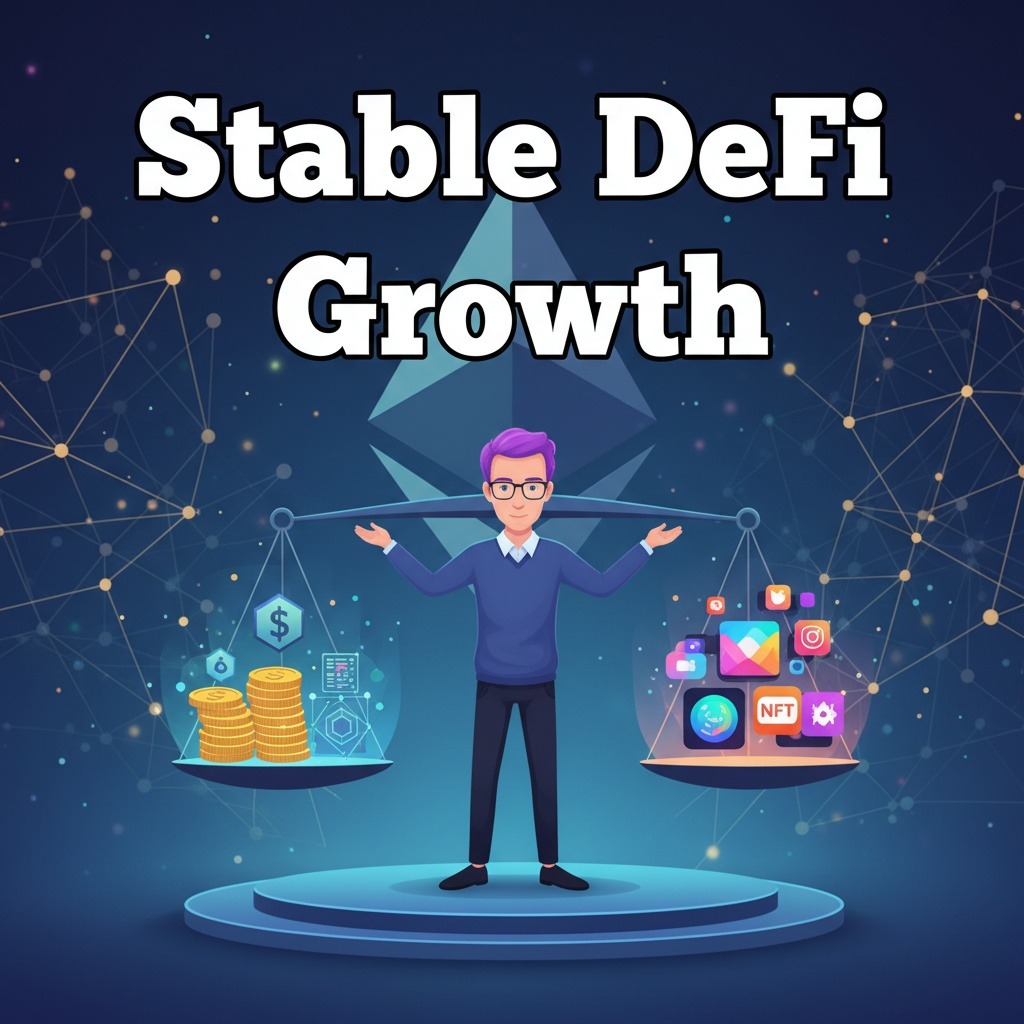In a recent blog post, Ethereum co-founder Vitalik Buterin highlighted the potential of low-risk decentralized finance (DeFi) protocols to enhance economic stability within the Ethereum network. Buterin draws a parallel between this concept and Google, noting how Google’s search engine supports the company’s vast ecosystem. He emphasizes that by adopting low-risk DeFi, Ethereum can align its revenue-generating mechanisms with the cultural and ethical values that originally attracted its community.
Buterin’s commentary comes at a time when the Ethereum community faces significant tensions surrounding the sustainability of apps that generate revenue. He pointed out a critical divide: while platforms offering non-fungible tokens (NFTs), memecoins, and speculative trading have found revenue, other decentralized applications that embody Ethereum’s core values have struggled to gain traction or produce sufficient fees. “This disjointness created a lot of dissonance in the community,” Buterin stated, asserting that low-risk DeFi could serve as a primary source of revenue for Ethereum.
One compelling example Buterin provided is the stablecoin lending rates on the DeFi platform Aave, which currently sit around 5% for well-established stablecoins like Tether (USDT) and USD Coin (USDC) and exceed 10% for higher-risk stablecoins. These metrics illustrate the viability of low-risk DeFi as a sustainable revenue stream, bridging gaps between finance and Ethereum’s foundational values.
The broader DeFi landscape is experiencing a revival, evidenced by the total value locked (TVL) on Ethereum DeFi surpassing $100 billion for the first time since early 2022, following a challenging bear market. Despite earlier declines, the renewed interest comes amid favorable regulatory developments, including momentum generated by the Digital Asset Market Clarity Act. A recent survey by the DeFi Education Fund revealed that over 40% of Americans might consider engaging with DeFi if stronger regulations were implemented.
Buterin argues that Ethereum is poised to outperform tech giants like Google due to its decentralized framework, which allows low-risk DeFi projects to intertwine financial prosperity with ethical considerations. “The revenue generator does not have to be the most revolutionary or exciting application of Ethereum,” he explained, “but it does need to be at least not actively unethical or embarrassing.” This sentiment stands in contrast to current advertising-driven models, like that of Google, which Buterin criticized for incentivizing data hoarding that conflicts with the tenets of decentralization.
Looking ahead, Buterin also advocated for innovative crypto assets aimed at enhancing the Ethereum ecosystem. He proposed the development of assets that could track a basket of currencies and the creation of flatcoins directly linked to consumer price indexes. This forward-thinking approach may further align Ethereum’s financial developments with its foundational ethics, supporting users in low-income and high-inflation regions and promoting long-term economic stability.
As the DeFi landscape continues to evolve, the integration of low-risk options could play a crucial role in ensuring that Ethereum remains both a robust financial ecosystem and a beacon of its original cultural values.



